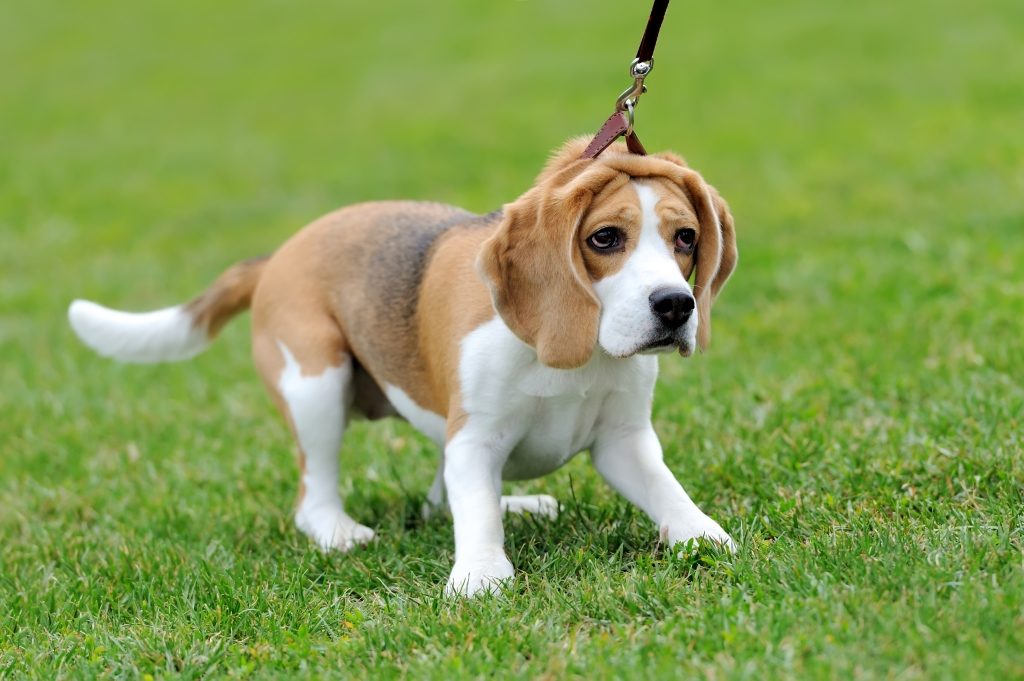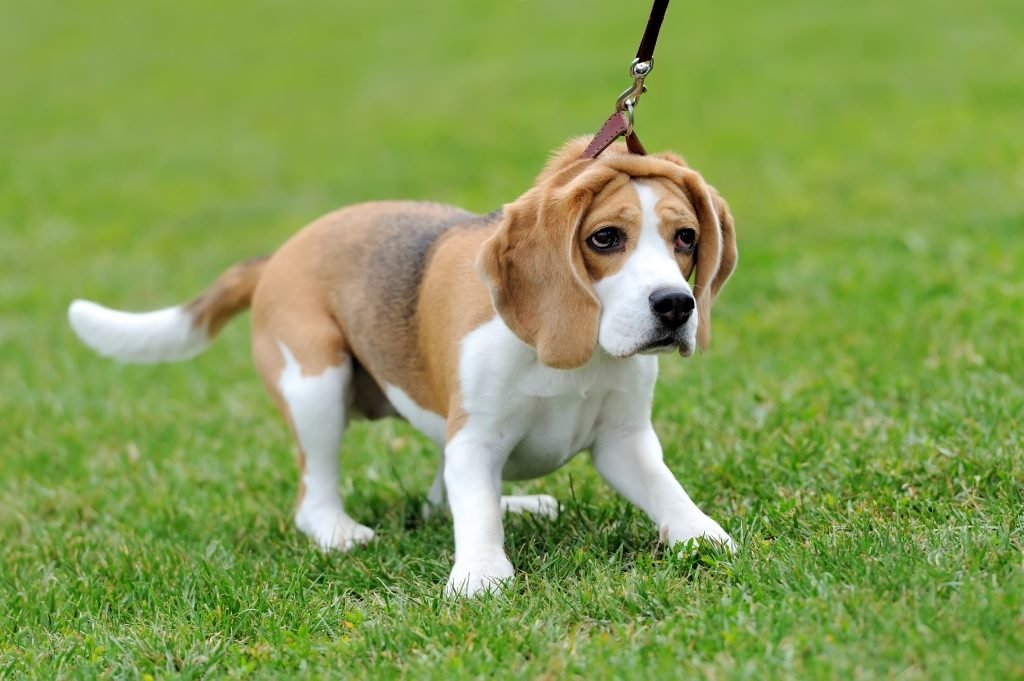Are you constantly asking yourself, “Why is my beagle so naughty?” Well, you’re not alone. Beagles, known for their friendly and lively nature, can sometimes display mischievous behavior that leaves their owners scratching their heads. But why exactly are beagles notorious for being naughty?
Beagles have a long history of being hunting dogs, known for their incredible sense of smell and boundless energy. These characteristics that were once valued in the hunting field can sometimes translate into mischief at home. Beagles are naturally curious and have high energy levels, which means they need plenty of mental and physical stimulation to avoid boredom. Without adequate outlets for their energy and curiosity, beagles may resort to misbehaving. In fact, studies show that lack of exercise and mental stimulation is a leading cause of behavioral problems in beagles. So, if your beagle is being naughty, it may be a sign that they are not getting enough exercise and mental enrichment.
If your beagle is behaving naughtily, it could be due to various reasons. Beagles are known for their curiosity and energy, which can sometimes manifest as misbehavior. It’s important to provide them with regular exercise and mental stimulation to keep them engaged. Additionally, beagles thrive on positive reinforcement training and consistent boundaries. Consider consulting with a professional dog trainer to address any specific behavioral concerns. Remember, patience and consistency are the keys to helping your beagle become a well-behaved companion.

Understanding the Naughty Behavior of Your Beagle
Beagles are known for their charming and lively personalities. They are playful, curious, and full of energy. However, sometimes their mischievous behavior can lead them to be labeled as “naughty.” It’s important to understand the reasons behind your beagle’s naughty behavior in order to address it effectively and ensure their well-being. In this article, we will explore the common reasons why your beagle may be acting naughty and provide insights on how to manage their behavior.
1. Lack of Proper Exercise
One of the main reasons why your beagle may be exhibiting naughty behavior is a lack of physical exercise. Beagles are an active breed that require ample daily exercise to burn off their energy. When they don’t get enough exercise, they can become bored, restless, and may engage in destructive behavior as a way to release their pent-up energy.
To address this issue, make sure to provide your beagle with regular exercise sessions. Take them for daily walks or runs, engage in playtime, and provide mental stimulation through interactive toys and puzzles. This will help them burn off excess energy and keep their minds stimulated, reducing their naughty behavior.
2. Lack of Mental Stimulation
In addition to physical exercise, beagles also require mental stimulation to keep their intelligent minds occupied. Without proper mental stimulation, they can become bored and resort to mischievous behavior as a form of entertainment. This can include destructive chewing, excessive barking, or digging up your garden.
To prevent these behaviors, provide your beagle with mental stimulation activities such as puzzle toys, scent games, and training sessions. Challenge their problem-solving skills and keep their minds engaged. This will help alleviate their naughty behavior and redirect their focus onto positive activities.
3. Separation Anxiety
Beagles are social dogs that thrive on human companionship. When left alone for long periods of time, they can experience separation anxiety, which can manifest as destructive behavior or excessive barking. They may chew on furniture, scratch doors, or have accidents indoors.
To address separation anxiety, gradually acclimate your beagle to being alone by leaving them alone for short periods and gradually increasing the duration. Create a safe and comfortable space for them with their bed, toys, and familiar scents. Consider using calming aids such as music or pheromone diffusers to help them relax. Additionally, providing them with a puzzle toy or treat dispenser can keep them distracted while you’re away.
4. Lack of Training and Socialization
Beagles are intelligent dogs that require consistent training and socialization from an early age. Without proper training, they may develop naughty behaviors such as jumping on people, pulling on the leash, or counter surfing.
Invest time in training your beagle using positive reinforcement techniques. Teach them basic commands and manners, and provide consistent guidance and boundaries. Socialize them with other dogs and people to help them become well-rounded and less prone to naughty behavior.
5. Lack of Structure and Routine
Beagles thrive in environments that provide structure and routine. Without a clear daily routine, they may become restless and engage in naughty behavior as a means of seeking attention or entertainment.
Create a structured routine for your beagle that includes regular feeding times, exercise sessions, training, and playtime. This will help them feel secure and reduce their inclination towards naughty behavior.
6. Health Issues
Occasionally, naughty behavior in beagles can be a result of underlying health issues. Pain or discomfort can manifest as restlessness, irritability, or aggression.
If you observe a sudden change in your beagle’s behavior, consult with a veterinarian to rule out any potential health issues. They can conduct a thorough examination and recommend appropriate treatment or management strategies.
7. Lack of Boundaries and Reinforcement
If your beagle has not been taught boundaries and rules, they may engage in naughty behavior simply because they are unaware of what is expected of them. Consistent reinforcement of appropriate behavior is crucial for them to understand what is acceptable and what is not.
Set clear boundaries for your beagle and consistently reinforce positive behavior through rewards and praise. This will help them understand what is expected of them and reduce their tendency towards naughty behavior.
8. Lack of Attention
Beagles are social dogs that require attention and interaction from their owners. If they feel neglected or bored, they may resort to naughty behavior as a way to seek attention.
Spend quality time with your beagle, providing them with attention, playtime, and affection. This will help fulfill their social needs and minimize their inclination towards mischief.
9. Fear or Anxiety
Sometimes, naughty behavior in beagles can be a result of fear or anxiety. Loud noises, unfamiliar environments, or traumatic experiences can trigger their anxious responses, leading them to engage in undesirable behavior.
If your beagle displays signs of fear or anxiety, such as trembling, hiding, or destructive behavior, create a safe and calm environment for them. Use positive reinforcement techniques to build their confidence and consider working with a professional dog trainer or behaviorist to address their specific needs.
10. Lack of Proper Housetraining
If your beagle is not properly housetrained, they may exhibit naughty behavior such as soiling indoors or marking territory.
Invest time and patience in housetraining your beagle. Establish a consistent routine for bathroom breaks, reward them for eliminating outside, and supervise them indoors to prevent accidents. Consistency and positive reinforcement will help them understand where it is appropriate to eliminate and reduce their naughty behavior.
Conclusion
Understanding the reasons behind your beagle’s naughty behavior is key to addressing and managing it effectively. By providing them with proper exercise, mental stimulation, training, and a structured routine, you can help redirect their energy and minimize their tendency towards mischief. It’s important to remember that consistency, patience, and positive reinforcement are crucial in shaping their behavior. Seek professional help if needed and remember to always prioritize your beagle’s well-being and happiness.
“Why is my beagle so naughty?” – Key Takeaways
- Beagles are known for their high energy levels and need plenty of physical exercise to avoid boredom and mischief.
- Training and socialization from a young age can help curb naughty behavior in beagles.
- Beagles have a strong sense of smell, which can lead to them getting easily distracted and exploring their surroundings.
- Lack of mental stimulation can contribute to a beagle’s naughty behavior, so providing them with puzzle toys and interactive games can help keep them occupied.
- Consistency, patience, and positive reinforcement are key in training a beagle and redirecting their naughty tendencies.
Frequently Asked Questions
Beagles are known for their energetic and mischievous nature. If you find that your beagle is particularly naughty, it’s important to understand the reasons behind their behavior. In this section, we’ll address some common questions about why beagles can be naughty and provide you with valuable insights and solutions.
1. What might be causing my beagle to be so mischievous?
There are several reasons why your beagle may display naughty behavior:
Firstly, beagles are known for their high levels of energy. If they don’t get enough physical exercise and mental stimulation, they can become restless and exhibit naughty behavior as a way of releasing their energy. Secondly, beagles can be naturally curious, and this curiosity can lead them to explore and get into trouble. Additionally, improper or inconsistent training can contribute to naughtiness in beagles.
2. How can I address my beagle’s naughty behavior?
To address your beagle’s naughty behavior, there are a few steps you can take:
First, ensure that your beagle is getting enough physical exercise. Regular walks and playtime can help drain their energy and reduce naughty behavior. Second, provide mental stimulation through puzzle toys and interactive games to keep their minds occupied. Consistent training and positive reinforcement techniques are also essential to teach your beagle good behavior and correct any naughty tendencies.
3. Is my beagle being naughty because they are bored?
Yes, boredom can be a leading factor in a beagle’s naughty behavior. Beagles are intelligent dogs that require mental stimulation to stay happy and well-behaved. If they are not provided with enough activities to keep their minds occupied, they may resort to mischief as a way of entertaining themselves. It’s important to provide them with puzzle toys, interactive games, and regular training sessions to prevent boredom.
4. Could my beagle’s naughty behavior be a sign of underlying health issues?
In some cases, a beagle’s naughty behavior may be a sign of underlying health issues. It’s always a good idea to consult with your veterinarian to rule out any medical conditions that could be causing the misbehavior. Pain or discomfort from certain health conditions can cause a dog to exhibit naughty behavior as a cry for help. Regular check-ups and open communication with your vet are crucial in maintaining your beagle’s overall health and well-being.
5. How can I prevent my beagle from being naughty when I’m not around?
When you’re not around, it’s important to set up a safe and stimulating environment for your beagle:
Provide them with puzzle toys and interactive games that can keep them engaged and entertained. Consider using baby gates or crates to limit their access to certain areas of the house where they may be tempted to get into mischief. Leaving them with interactive toys or treats can also help redirect their energy and keep them occupied. Consistency in training, both when you’re present and when you’re not, is key in preventing naughty behavior.

Understanding why your beagle is acting naughty can be frustrating. There are a few common reasons for their misbehavior.
Firstly, beagles are known for their high energy levels and curiosity, which can lead to mischief if not properly channeled. Providing them with enough physical exercise and mental stimulation can help reduce their naughty behaviors.
In addition, beagles are scent hounds and have a strong instinct to follow their nose. This can make them easily distracted and prone to wandering off or getting into things they shouldn’t. It’s important to keep your beagle in a secure and stimulating environment.
Lastly, beagles are social animals and may act out if they feel bored or lonely. Spending quality time with your beagle, providing them with socialization opportunities, and considering a companion for them can help alleviate their naughty behavior.
Remember, patience and positive reinforcement training are key when dealing with a naughty beagle. With consistent guidance and adequate outlets for their natural instincts, you can help redirect their behavior and foster a happy, well-behaved pet.
